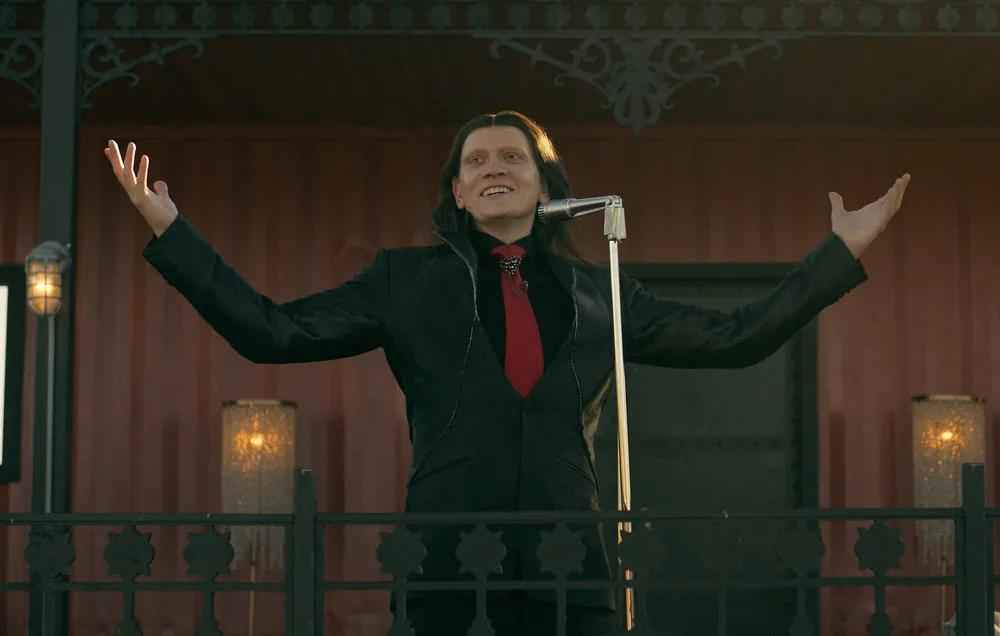“Twisted Metal” the show finally gets to be twisted this season, and the result is one of the most surprising jumps in quality from a first to second season in a very long time.
While never reaching the critical speeds of hits like “Fallout” or “The Last of Us,” Peacock’s “Twisted Metal” became a surprisingly huge hit for the streamer, giving the production the kind of confidence that can often boost creative freedom. The result is a sophomore outing that’s significantly better than the first in every department, shifting the focus from an awkward road comedy to the vehicular arena-based mayhem that fans of the game were expecting from the beginning. The 12-episode second season features more action, personality, character development, and effective humor from the very start. It gets a little lost in the final episodes with too many plot threads to untangle, but the cliffhanger that promises another outing feels more like a promise than a threat this time.
The clunky first season ended with John Doe (Anthony Mackie) finally getting into New San Francisco, only to learn the classic lesson of being careful what you wish for. It turns out that he’s only allowed to live there if he races for Raven (Patty Guggenheim, replacing season one’s Neve Campbell in a manner that’s cleverly explained) in the upcoming Twisted Metal tournament. She puts John Doe up in his childhood home, where he reads Babysitters Club books and plans an escape back to the more exciting world on the outside and his love, Quiet (Stephanie Beatriz), who is now riding with a group led by Dollface (Tiana Okoye), who happens to be the sister that amnesia-addled John can’t remember.
Dividing John and Quiet for the opening episodes of season two smartly allows Mackie and Beatriz to carve out these characters in ways that don’t solely relate to how they interact with each other. Beatriz is especially strong in her scenes with Dollface and her minions, which quickly include a new face named Mayhem (the season MVP Saylor Bell Curda). Meanwhile, Sweet Tooth (physically portrayed by Joe Seanoa and voiced by Will Arnett) and Stu (voiced by Mike Mitchell) are roaming the countryside, causing mayhem, essentially waiting for the tournament to start. Along the way, we finally get the involvement of a few fan favorites from the game, including Axel (Michael James Shaw), Mr. Grimm (Richard de Klerk), and the man in charge of the Twisted Metal tournament, Calypso (a wonderful Anthony Carrigan). And, most importantly, we get to watch them battle “Fury Road”-style in episodes that center on what the game was all about in the first place.
The second season of “Twisted Metal” leans into the humorous nature of its entire cast instead of just letting Sweet Tooth get most of the bad jokes. While the first season often seemed afraid to get weird, the writers embrace their insanity this time around, mixing playful humor into the carnage. Thinking about it after a dozen episodes, there’s not exactly a wealth of character details or narrative twists, but everyone simply seems to be having more fun this year, and that can be infectious. If the first season felt like an obligation to ride a wave of video game adaptations, the second feels like an honest effort to satisfy both fans of the games and those who never played them. The result is a season that finds its tone in ways that the first never did.

It helps to have a cast that all seems to be on the same page regarding “Twisted Metal”’s bloody sense of humor. Carrigan leans into his slimy side, sketching a Calypso that will prefer it if no one wins his tournament at all, as long as audiences are entertained. One can see his NoHo Hank from “Barry” taking a similar trajectory to a sociopathic opportunist. Mackie’s comic timing seems tighter; Beatriz’s emotional beats are more grounded in character; Mitchell is more than Sweet Tooth’s sidekick. Engaging newcomer Curda becomes the MVP of the mid-section of the season, using Mayhem to give the show a youthful burst of energy that it seriously needed in the drab first outing. Most importantly, letting characters like Dollface, Mayhem, Stu, Axel, and Grimm get arcs allows Mackie & Beatriz not to have to do so much heavy lifting on their own, turning the show into more of an ensemble, which is what it should have been from the first lap.
I’ve long suggested that comedies need a season to find their footing. Look at the first seasons of “Parks and Recreation” and even “30 Rock” for shows that aren’t anywhere near the comedic peaks they would reach in later years. I think it’s a product of writers needing to experiment as they find the comic timing of their characters, playing to the strengths of their ensemble as they explore them together. Maybe it’s because of all of the explosions and murders that I didn’t apply this theory to “Twisted Metal,” a comedy that I dreaded having to revisit. Life is full of surprises.
The first three episodes are now on Peacock, with a new episode every week.
